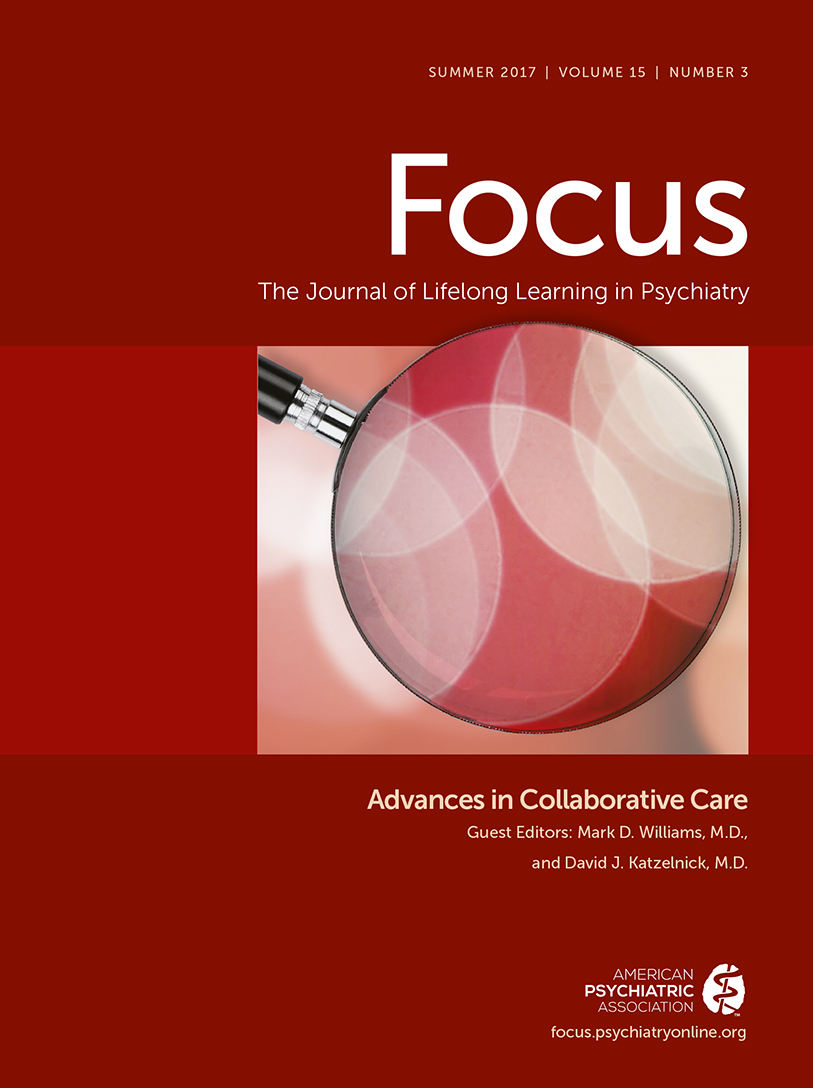Abstract
Medical progress has greatly extended the life span of individuals living in the United States, yet certain groups have lagged behind in achieving wellness and longevity. Prominent among these are individuals with serious mental illness. Because of this, various initiatives have been launched at the community, state, and national level to improve the medical care of those with serious mental illness. Many of these initiatives promote “reverse integration,” or the provision of collaborative care services in behavioral health locations. Despite significant barriers to implementation, these initiatives have shown moderate success in improving medical outcomes for those with serious mental illness, in both research and “real-life” settings. Additionally, the role of psychiatrists in addressing physical health has been explored, and there is a need for educational opportunities to optimize competency in this area. Overall, work still needs to be done before the mortality gap for those with serious mental illness dissipates.



